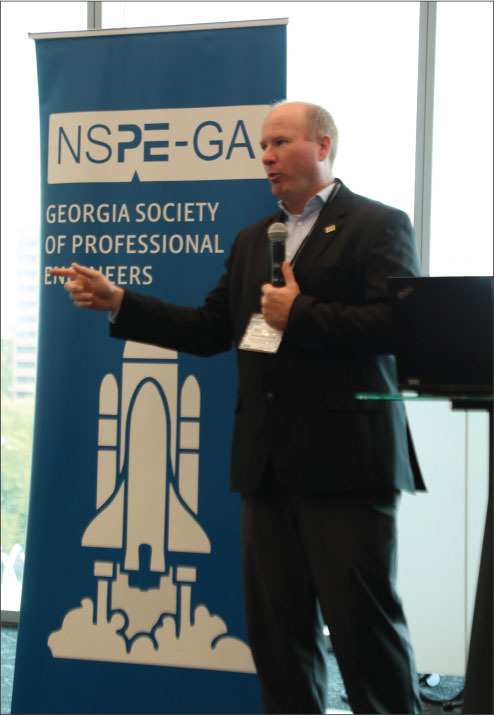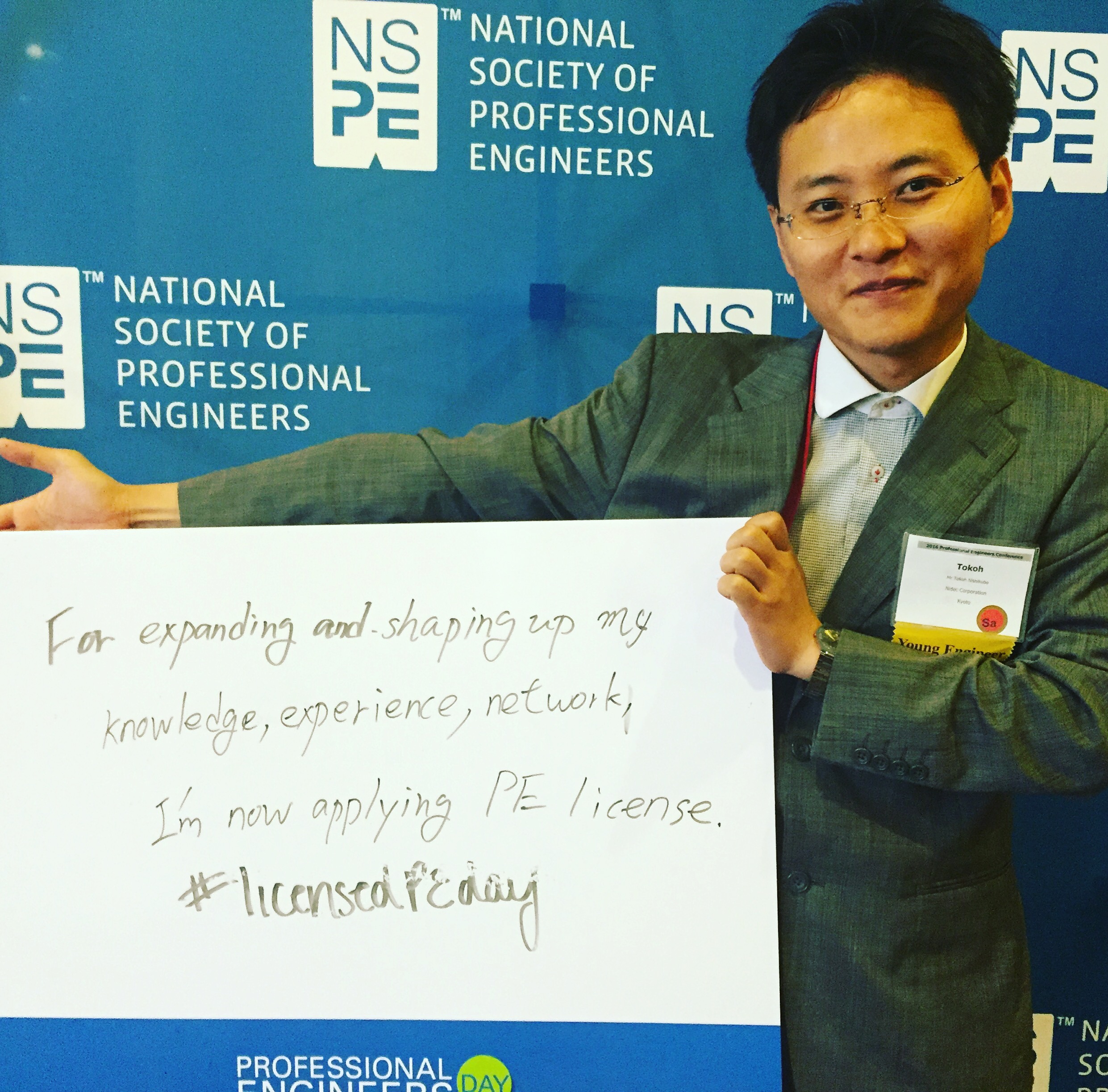October 2014
NSPE TODAY: OUTLOOK
A Key Partner in Licensure
BY EXECUTIVE DIRECTOR MARK GOLDEN

NSPE has an 80-year record of action defining, promoting, protecting, and enhancing the value of professional licensure. Throughout that entire history, NSPE has probably not had a more important strategic partner than the National Council of Examiners for Engineering and Surveying.
NCEES’s members are the engineering and surveying licensure boards from all 50 states, the District of Columbia, Guam, Puerto Rico, and the U.S. Virgin Islands. The mission of NCEES is similar and complimentary with NSPE’s: “to advance licensure for engineers and surveyors in order to protect the health, safety, and welfare of the public.” NCEES develops, administers, and scores both the Fundamentals of Engineering and the Principles and Practice of Engineering exams and creates uniform model laws and model rules for adoption by its member licensing boards.
Made up as it is by the very boards that administer and govern professional licensure, NCEES is where the rubber hits the road on licensing matters, and where NSPE and NCEES’s shared vision of universal, uniform, and meaningful licensure gets translated into a day-to-day reality.
Committed to Achievement
As the collective body of licensing boards, NCEES has enormous capacity, and an impressive history of success with the Model Law and the normed PE and FE exams, recognized in all U.S. jurisdictions and in a growing number of places overseas.
But like any collaborative organization, NCEES also faces limitations. After all, its member boards are not, themselves, fully autonomous entities. They are generally departments or divisions within state government agencies. Their scope of operating authority is very narrowly and specifically defined in the authorizing laws and implementing regulations in their particular states, and these vary widely. Some licensing boards have broad latitude to change their rules to achieve uniformity; others can’t modify a single semicolon without formal action by the state legislature. So, even where consensus is achieved among the licensing boards, there is an understandable and persistent gap between NCEES’s aspirations and its member boards’ ability to implement that vision. But to its credit, in all my direct experiences with NCESS, I have seen an organization committed to a persistent and unwavering challenge to those limitations and to the maximization of mission achievement.
A Long History
NSPE’s strategic partnership with NCEES goes back to our very earliest days. NCEES’s predecessor organization (the National Council of State Boards of Engineering Examiners, or NCSBEE) was involved in the very first organizational meetings that led to the creation of NSPE in 1934. In fact, T. Keith Legare (then serving as secretary of NCSBEE) went on to serve as NSPE’s first executive secretary. The founders’ original plans included having the new NSPE and NCSBEE share common offices and common staff in Washington, DC, while remaining separate and autonomous organizations. (Although ultimately NCSBEE remained headquartered in South Carolina and NSPE went on to establish its offices in Washington, NSPE remains registered as a South Carolina corporation to this day.)
Today, NSPE volunteers and staff work closely with NCEES throughout the year, including on an annual leadership summit with ABET and the American Society for Engineering Education. NSPE also is a “participating organization” within NCEES and holds a seat on its Participating Organizations Liaison Council. Accordingly, the NSPE president, executive director, and POLC representative are all involved in an official capacity at NCEES’s annual meeting. NCEES’s 93rd such annual meeting was held August 20–23 in Seattle, Washington.
The NCEES annual meeting is the culmination of the council’s work for the year, when representatives from its member licensing boards meet to take formal action on everything that has been worked on throughout the year. Imagine something like the NSPE House of Delegates meeting, but with nearly 250 official delegates (and an equal number of guests and observers). Operating under strict parliamentary procedure, the council acted on 54 motions, during four business sessions, totaling nine hours of formal deliberations, over the course of two long days. (And that’s not counting two sessions for zone meetings interspersed between business sessions, and a three-hour, informal engineering forum prior!)
In addition to these formal business sessions, NSPE President Harve Hnatiuk, P.E., F.NSPE, participated in NCEES’s Board of Directors meeting preceding the meeting, and I covered their post-council board meeting.
Continued Collaboration
Testimony to NSPE’s recognized stature, expertise, and credibility, we were invited to provide 4.5 hours of formal, structured education to NCEES delegates during three seminar sessions. Art Schwartz, NSPE deputy executive director and general counsel, provided two sessions: “An Overview of Engineering and Surveying Ethics,” as well as an interactive discussion of case studies involving real-life engineering and surveying ethics and practice issues. Jon Nelson, a member of NSPE’s Licensure and Qualifications for Practice Committee (and himself an NCEES past president) led a workshop on NSPE’s Engineering Body of Knowledge.
As these examples show, NSPE and NCEES enjoy a special relationship. Through ongoing collaboration, this longstanding partnership will continue to move both organizations toward their shared vision of professional licensure.
Learn more about the outcomes from NCEES’s annual meeting in Seattle at http://ncees.org/about-ncees/ncees-news/all-news/


 Volunteering at NSPE is a great opportunity to grow your professional network and connect with other leaders in the field.
Volunteering at NSPE is a great opportunity to grow your professional network and connect with other leaders in the field. The National Society of Professional Engineers (NSPE) encourages you to explore the resources to cast your vote on election day:
The National Society of Professional Engineers (NSPE) encourages you to explore the resources to cast your vote on election day:



